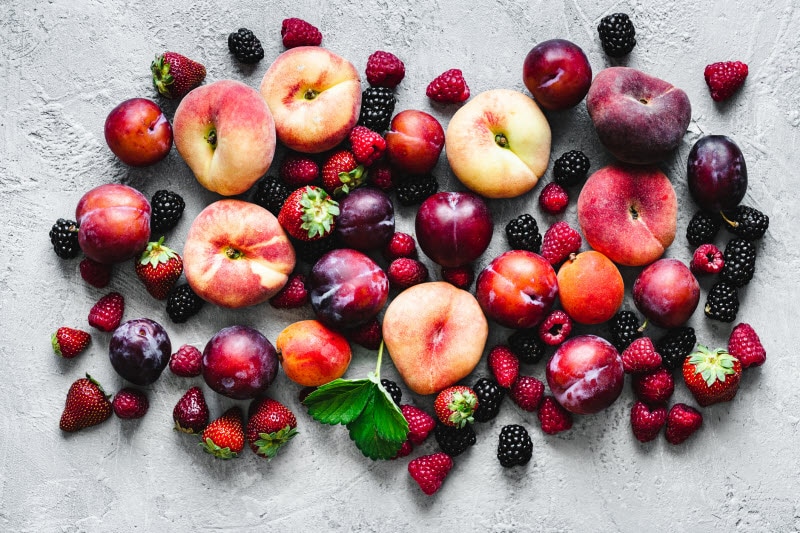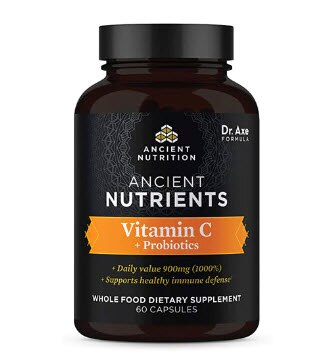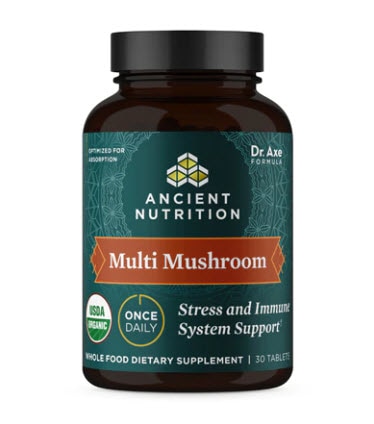We hear a lot about the dangers of oxidative stress and free radical damage, especially when it comes to aging. For example, many supplements and foods which contain antioxidants— such as berries, dark chocolate, leafy greens and red wine— are promoted as being capable of “fighting free radicals” and possibly contributing to longevity in the process.
So what exactly are free radicals, and how does consuming antioxidants help counteract their effects? Let’s find out below why a diet rich in antioxidants, such as from foods like fresh vegetables, fruits, herbs and teas, is linked to a healthier, more resilient body.
Why antioxidants are needed to fight free radicals
Free radicals are defined as unstable molecules that are made during normal cell metabolism. They contain oxygen and are “unstable” because they have an unpaired electron. They’re formed when molecules or atoms either gain or lose electrons.
Although they occur “normally,” free radicals can cause chemical changes to take place in cells that contributes to damage within the body.
In fact, many chronic diseases are rooted in free radical damage, oxidative stress (which occurs when free radicals accumulate) and inflammation. All of these can negatively impact DNA, nucleic acid, cells’ mitochondria, lipids (fats), and proteins.
The more oxidative stress and inflammation someone experiences, the greater risk they have for developing conditions related to dysfunction of the immune system, heart, brain, liver and other organs.
What generates the most free radicals?
Every person experiences some degree of free radical damage because it occurs on a regular basis as a side effect of normal living.
That being said, some people experience more, sometimes in dangerous amounts, due to living an unhealthy lifestyle or exposure to certain chemicals.
Some of the biggest generators of free radicals include:
- An unhealthy diet that lacks essential nutrients and antioxidants
- Smoking cigarettes
- High consumption of alcohol
- Breathing in air pollutants
- Exposure to environmental toxins, heavy metals, x-rays/radiation and industrial solvents and chemicals
- Exposure to pesticides found in the food supply
- Use of certain drugs like halothane and paracetamol
How do antioxidants work?
An antioxidant is any substance that inhibits oxidation. Antioxidants help to stabilize free radicals by giving up an electron. This boasts a variety of proven health benefits, including those related to cardiovascular, digestive, metabolic and neurological wellness.
Some of the benefits that a diet high in antioxidants can provide include:
- Contributing to a healthy inflammatory response.
- Supporting a healthy gut microbiome.
- Supporting healthy blood pressure and healthy cholesterol levels.
- Supporting cognitive health, such as by helping to promote healthy energy levels and focus.
- Potentially supporting a healthy body weight (a diet high in nutrient-rich plant foods is tied to help preventing obesity).
- Promoting a positive mindset and mood, such as by keeping the “gut-brain axis” happy.
- Aiding in liver function and healthy detoxification.
Antioxidant Plan
Ready to boost your antioxidant intake and arm yourself against the effects of oxidative stress? Here’s how to do it.
1. Aim for variety (“eat the rainbow”)
What are the best types of antioxidants (or phytochemicals) to seek out from foods and supplements? These include:
- Flavonoids
- Polyphenols
- Lignansand plant sterols
- Carotenoids, such as beta-carotene, lycopene, lutein and zeaxanthin
- Anthocyanins
- Flavones and isoflavones
- Catechins
- Isothiocyanates
- Organosulfures such as aallyl sulfides
The very best way to ensure that you’re getting the antioxidants you need is to eat a wide range of colorful plant foods, including veggies, fruits, herbs, teas and spices.
There isn’t a recommended intake of most individual antioxidants; rather the goal is to consume a mix of these nutrients on a regular basis for the most positive health effects.
You can do this by eating antioxidant-rich foods (see more below), and also by taking supplements of antioxidant vitamins such as vitamins C, E and A
2. Eat antioxidant foods
People who eat lots of different vegetables and fruits have lower risks of experiencing many health conditions. The benefit of obtaining antioxidants from food sources is that plants contain many different types of beneficial compounds, as opposed to singular antioxidants.
For instance, some plants can contain up to 100,000 phytonutrients! These nutrients work together to support the body in complex ways; therefore, a healthy diet should be your No. 1 priority for fighting free radicals. Ideally, choose organically grown, season plant foods to maximize your nutrient intake.
The top antioxidant foods include:
- Leafy greens, such as kale, collard greens, spinach, watercress, dandelion greens and others
- Onions such as red, yellow and white onions, plus scallions, chives, leeks, etc.
- Garlic
- Broccoli, Brussel sprouts, cauliflower and other cruciferous veggies
- Red bell peppers
- Herbs, such as peppermint, basil, cilantro, rosemary and cloves
- Pomegranate seeds
- Dark chocolate
- Blackberries, blueberries, raspberries, cranberries, gooseberries, açaí and other berries
- Peaches, mangos, melons, citrus fruits, kiwi and other fruits
- Beets, carrots, sweet potatoes and other root veggies/tubers
- Tomato and tomato juice
- All types of teas, such as green, black, white and herbal teas
- Coffee
- Flaxseeds, sunflower seeds, pumpkin seeds, walnuts, almonds and other nuts/seeds
- Legumes, such as dried beans, peas and lentils
- 100% whole grains, such as oats, wheat berries, brown rice, wild rice, quinoa, barley and organic corn
3. Consider antioxidant vitamins and supplements
In addition to obtaining antioxidants and phytochemicals from your diet, you can boost your intake and fill in gaps in our diet by taking certain supplements, including some vitamins and herbs.
Vitamins that are considered antioxidants include vitamins C, A and E. Selenium (a mineral) also has some antioxidant effects. It’s still up for debate how effective these nutrients are at fighting free radicals when consumed in supplement form. However, they can still help support general immune function and more.†
How much should you take? Here are some general recommendations for adults:
- Vitamin C: 75 to 90 mg/day
- Vitamin A/beta-carotene: 700 to 900 micrograms/day (equal to 2,300 to 3,000 IU/day)
- Vitamin E: 15 mg/day
- Selenium: 55 mg/day
Additionally, the herbs and medical plants below are good sources of antioxidants:
- Functional mushrooms such as reishi, lion’s mane and cordyceps
- Aloe vera
- Arnica
- Arrowroot
- Milk thistle
- Clove
- Dandelion
- Ginkgo biloba
- Ginseng
- Lavender
- Peppermint
- John’s wort
- Witch hazel
†These statements have not been approved by the Food and Drug Administration. These products are not intended to diagnose, treat, cure or prevent disease.



